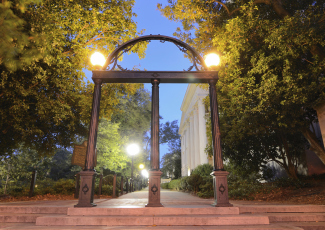How to Support the 4-Year Graduate at Community College
By Ellen Ullman
December 1, 2015
One in 14 community college students already has a bachelor’s degree. How can administrations make sure these students get what they need?
This fall, 7.1 percent of the students at Austin Community College (ACC), in Texas, have already earned their bachelor’s degrees. Most of these students are enrolled in technology or health care programs. In fact, 60 percent of the 700 students in the Accelerated Programmer Training (APT), which prepares students to become computer programmers, have bachelor’s degrees, as do 30 percent of students studying biotechnology.
But this situation is not unique to ACC. The college’s president, Richard Rhodes, says it’s becoming more common for students who have bachelor’s degrees to attend community college. His colleagues, particularly those at large urban community college districts across Texas, are also seeing an increase in the number of students who have four-year degrees. Earlier this month, when Rhodes attended a meeting about transfers between community colleges and four-year universities, the topic of supporting 4-year graduates came up.
“The presidents at that meeting, from large urban districts all over the country, are seeing higher numbers of bachelor’s-degreed students coming back to community colleges,” Rhodes says. “It needs to be part of the national conversation.”
Providing the right services to 4-year graduates
To figure out how to address their needs, it’s important to first understand why students with bachelor’s degrees are returning to community college. Rhodes says the students at ACC are there for one reason: They were unable to find jobs.
Last spring, when Rhodes led a team of college presidents from Denmark around ACC’s Highland campus, they walked into a biotech lab to meet students. According to Rhodes, 12 of the 25 students in that lab said they had already earned bachelor’s degrees but had come to ACC to get the skill sets needed to get a job.
Some of these students have been away from an educational environment for a long time; others may have majored in an area, such as sociology, that didn’t have a heavy math component. For both groups of students — many of whom are now taking technology courses that demand strong math skills — ACC created the ACCelerator on its Highland Campus. The ACCelerator is the place to go for all kinds of help. It features more than 600 computer stations for individualized instruction, as well as an extensive support network of faculty, counselors, librarians and tutors. From tutoring (particularly in math) to group advising to academic coaching, the ACCelerator is the place to be.
Located in a former J.C. Penney department store, the ACCelerator was developed to be an open, friendly place for students to hang out. All students are taking advantage of it, and Rhodes believes that students who have been at universities with congregating spaces might feel especially comfortable spending time at the facility. “The environment we’ve created encourages students to stay around, help each other, and collaborate,” he says.
In particular, students can go to the ACCelerator to take an adaptive developmental class that lets them work as quickly as they can to be placed into a college-level math course.

Reaching out to veterans with 4-year degrees
About 13 percent of the veterans who attend ACC have bachelor’s degrees. ACC offers a program through the Texas Workforce Commission that is targeted at veterans and is intended to get them fast-start training in technology. This pathway allows veterans to earn industry certification so they can quickly make a living wage in the local economy; with more than 8,000 IT job openings in central Texas, there are plenty of opportunities.
Perhaps the best thing ACC can do for all students is to continue doing what community colleges do best: finding out what local employers need and then providing the necessary training. As Rhodes says, “We will continue to provide the competencies employers want and train individuals to meet those needs.”
Photos courtesy of ACC






